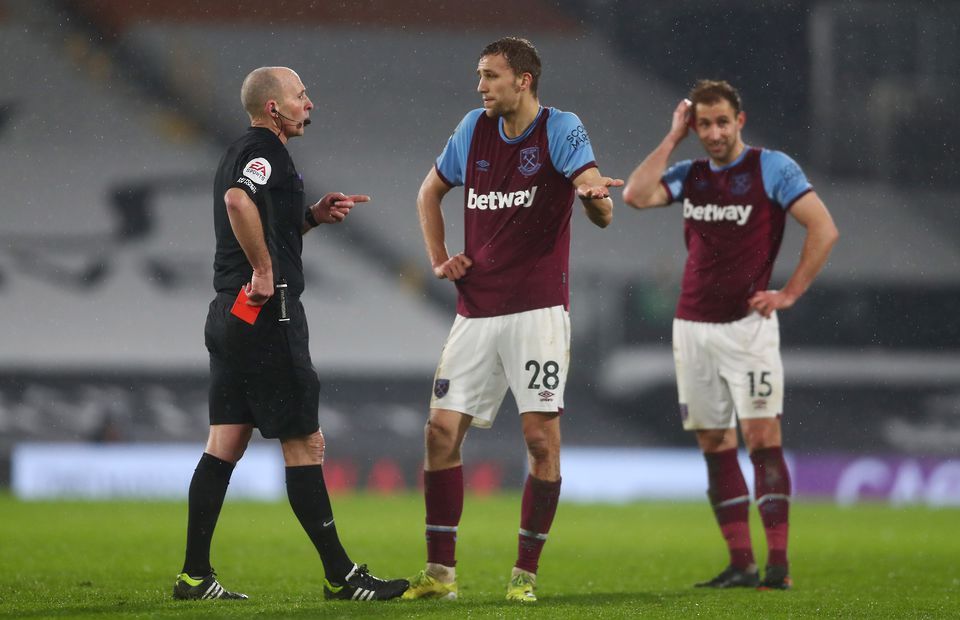While players, pundits, managers and fans alike are more than happy to jump on the backs of referees for any decision they deem to be erroneous, it's rarely discussed how such mistakes actually affect the men in black.
Well, it turns out that they're pretty significant on an individual level too. As well as professional pride, abuse from supporters and the obvious impact a steady string of wrong decisions will have on their career trajectory, it turns out referees quite literally pay the price if they make a bad call.
According to The Daily Mail, referees see their annual bonuses impacted by every single error, whether that's a throw-in or corner being awarded to the wrong team or something far more significant like Tomas Soucek's recent sending off against Fulham, which was overturned post-match.
Referees take home £110k-£120k per year as a salary but can earn up to £50k in bonuses on top. That, however, all depends on where they finish in each season's 'merit table', which is essentially a tally of correct and incorrect refereeing decisions - as determined by referee governing body PGMOL.
Come the end of the season, the referee at the top of the merit table will receive the biggest bonus, and the official at the bottom will receive the least. So ultimately, every bad decision from an official takes future earnings out of their pocket.
GIVEMESPORT's Christy Malyan says...
This really puts the current pitch-side monitor process under the spotlight, for a couple of reasons. As The Daily Mail's report also explains, any decision that is overturned in such a scenario, which is becoming increasingly frequent in the Premier League, counts as a refereeing mistake.
That not only leaves a referee 'downhearted', to quote The Daily Mail's unnamed source, but will also impact them financially further down the line.
At the same time, it's alleged that referees feel massive pressure to change their decisions when they're called to the pitchside monitor, which is how Mike Dean ended up sending off the aforementioned Soucek - as well as Southampton's Jan Bednarek, who also saw his red card against Manchester United overturned.
It's something that really needs to be looked into because whichever way you look at it, the process doesn't seem to be a particularly healthy one - especially now we know money is a factor.
Of course, referees are incredibly professional and it would be unfair to suggest any Premier League official would place their own financial gain over making the correct decision.
At the same time, something just doesn't feel right about referees essentially agreeing to a monetary penalty under huge pressure from players and cameras who impatiently look on as they evaluate footage on a monitor. That pressure will only be bigger once fans are back in stadiums.
The alternative for referees is to disregard VAR's suggestion that a wrong call was made, as Chris Kavanagh did last weekend when he stuck with his decision to award a penalty after Trent Alexander-Arnold belatedly collided with Dominic Calvert-Lewin.
But again, knowing that referees could have an underlying motivation to avoid being penalised in the PGMOL table creates an uneasy feeling.
Whichever way you look at it, there seems to be a lot of white noise around what should ultimately be a question of officials purely making the right decision. New technology was meant to make the job easier for referees - but in this instance, it's added another complication.




















